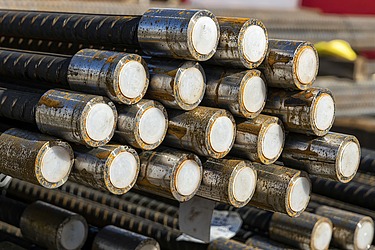Resource efficiency & Circularity
We prioritise responsible sourcing, sustainability, and circular economy principles in the UK. By 2040, our goal is to eliminate waste, ensuring all materials are repurposed through innovation and strategic design
Ethical and sustainable procurement
At the heart of our ISO 20400 sustainable procurement approach is a steadfast commitment to ethical procurement.
Maintaining ethical procurement practices is crucial to ensuring that the goods and services we source align with our business aims and values.
We actively foster close relationships with our supply chain to ensure that all key materials are sourced under third-party certified processes such as BES6001.
Our social value charter, sustainable procurement minimum requirements, and collaborative approach with our supply chain partners reinforce our continuous commitment to improving social and environmental sustainability across our entire value chain.
Circularity
Over half of the carbon emissions linked to the construction industry come from the production of materials and products, particularly steel and cement, which together account for around 15% of global emissions. The construction sector also generates approximately 60% of the waste produced in the UK.
Beyond the carbon intensity of construction materials, raw materials are becoming increasingly scarce and expensive. Rather than being cyclic, the lifecycle of materials remains largely linear, commonly referred to as the ‘take-make-dispose’ model.
Our ambition is that by 2040, waste will no longer be a term we use, ensuring that all materials have a beneficial use and a means of repurposing. As a first step, we have set a target for 2030 to ensure that 100% of inert waste is beneficially reused while we actively design-out waste from our technical solutions.
We firmly believe that a strategic approach to design and delivery is the key to achieving our ambitious environmental and social sustainability goals. Sustainability considerations are being embedded at every stage of the construction lifecycle—from concept design through to procurement, delivery, and operation.
To support this vision, innovation is a core focus across the STRABAG Group, with over 250 active innovation projects.

